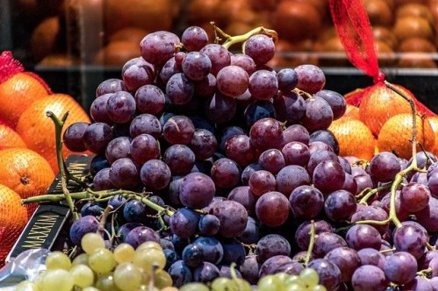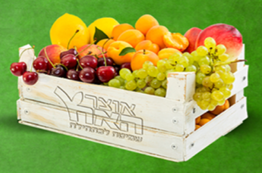Guidelines for consumers for purchasing fruits and vegetables

How are we supposed to buy otzar beit din produce? Can I buy shemitah produce from farmers who grew it by transgressing shemitah laws? Chapter 13 of the Consumer's Guide to Shemitah.
A. General guidelines
- Buy fruits and vegetables only from places supervised by the local rabbinate or by one of the shemitah committees approved by the Chief Rabbinate.
- Optimally, buy produce sold through otzar beit din so one can eat sacred produce and strengthen the farmers who make special efforts to properly observe the shemitah
- Nevertheless, it is halachically permissible lechatchilah to purchase vegetables from any place with certification that the land on which the produce was grown was properly sold to a non-Jews through heter mechirah. One need not worry about the prohibition of transacting with sacred produce.
- When purchasing from otzar beit din, since the payment is not for the price of the produce, the shemitah sanctity is not transferred to the money. For this reason, consumers can pay in cash.
- Several friends can make a large order from otzar beit din and divide the produce among themselves. When dividing up the produce, it may be weighed.[1] The money paid to the friend who bought the produce from the store does not become sacred.[2]
- If one person buys a large quantity of groceries from otzar beit din and wants to sell whatever he doesn't need to a friend, the sale is permitted.[3] However, the seller is not allowed in this case to weigh the groceries[4] and shemitah sanctity is imparted to the money.[5]
- The prohibition against transacting with shemitah produce does not apply when purchasing additional, non-sacred items (havla'ah).[6] For this reason, it is permissible to buy a product in a regular fashion when some, but not all, ingredients have shemitah[7] Likewise, it is permissible to buy catered food that uses sacred shemitah produce.
- It is forbidden to buy agricultural produce from farmers who transgress shemitah Before purchasing groceries, it is important to check that the farmer indeed sold his land to a non-Jew, or that he works and sells produce under other halachically permissible methods.
- Customers who want to be stringent, and handle produce as sacred even after the land was sold to a non-Jew, can nevertheless buy the produce in the regular manner.[8] It is not considered that the buyer is "placing a stumbling block before a blind person" or giving sacred shemitah money to ignoramus who will not handle the money properly.[9] This is because the vendors are following the majority halachic opinion that heter mechirah voids the produce of its sanctity.[10]
B. Guidelines for purchasing fruit
- Fruit from the sixth year (for table with dates, see Appendix A) can be purchased without limit.
- Fruit that belongs to the shemitah year (see Appendix A) should be purchased in places with certification stating that the fruit came from farmers who work in a halachically permissible fashion. One should check for this certification through the spring of the eighth year.
[1] Az Nidberu X §45. See Shabbat Ha'aretz 6:3 §2 and n.11.
[2] Since one of the friends acts as the agent for the others, and the payment is to pay a debt and not for the price of the groceries.
[3] Rambam 6:2.
[4] Ibid., 6:3.
[5] Ibid., 6:8. See Chapter 9, §C.1.
[6] See Chapter 9, §C.13.
[7] Rabbi Frank, Kerem Tziyon, ch. 17, Gaon Tzvi §1; his rationale is that this is considered havla'ah. However, some maintain thatit is not considered havla'ah. This is the opinion of Rabbi Avraham Menachem Steinberg (5607–5688, Brody, Ukraine), Beit Ridbaz, Mishmeret Lehabayit 23a. Rabbi Eliahu rules accordingly. See also Shabbat Ha'aretz 8:11 §2.2.
[8] Mabit (I §21, s.v. vegam) permits Jews to buy from another Jew produce grown by non-Jews. This is despite the fact that the Mabit holds that such produce has shemitah sanctity, so the money from the transaction would become sacred. The reason for this is that the Jewish seller follows the halachic opinions that such produce is not sacred, so the money would not become sacred as a result of the transaction. This action is permitted and is not considered "placing a stumbling block before a blind man," since the seller bases his actions on solid halachic opinions. Ketav Sofer §77writes that a person who is stringent, and avoids eating a certain food, may nevertheless give it to someone else who is lenient about this particular halachah. This is despite the fact that the former holds that the food is prohibited; this does not constitute the prohibition of placing a stumbling block before a blind man.
[9] See Shabbat Ha'aretz 8:11 §3 and n. 18. Rabbi Eliahu notes that some make payments in ways that ensure that the money does not become sacred.
Minchat Shlomo §44 (and Kerem Tziyon 19:5) writes that the custom is to be lenient with regard to shamur and ne'evad. In his opinion, it is permissible to purchase fruits and vegetables that are not sefichin, and this does not constitute "placing a stumbling block before a blind man," or giving shemitah money to an ignoramus, even if the produce is weighed and measured and transacted with. Iggerot Moshe, OC I §186 on shemitah etrogim from 5712 grown in groves sold to a non-Jew and exported to the United States, one rabbi wrote that it is prohibited to buy them, and one who does so is considered one who violates Shabbat in public. Rabbi Moshe Feinstein writes that the etrog should be purchased by means of havla'ah with the lulav. Since those who permit exporting heter mechirah rely on guidelines of halachic authorities, this does not constitute a violation of shemitah laws and one may purchase such etrogim. See Shabbat Ha'aretz 8:14 §7; 6:1 §6, n. 55.
It is also permissible to sell agricultural work tools to those who rely on heter mechirah. See Shabbat Ha'aretz 8:2 §9.1, 8:8 §6 and n. 29.




